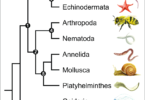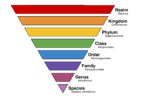Vitamin K newborn dose, deficiency and their side effect
Vitamin K is fat soluble vitamin also called as blood coagulation vitamin. It helps in clotting of blood and prevent hemorrhage. Hemorrhagic condition is called haemophilia and due to deficiency of Vitamin K causes increased blood clotting time.
Vitamin K plays a role in helping the blood clotting and preventing excessive bleeding. unlike other vitamin vitamin K is not used as dietary food supplement.
Table of Contents
Why do people take vitamin K
Deficiency of Vitamin K in body can raised risk of uncontrol bleeding and increase blood clotting time. And sufficient amount of Vitamin K taking from their balance diet can prevent from excessive bleeding and help in blood clotting. People should eat asparagus, broccoli, beans, eggs, liver, strawberries that’s are the important vitamin K sources food which supply vitamin K in our body.

Vitamin K newborn dose, deficiency and their side effect
Who are more risk to vitamin K deficiency
Deficiency of Vitamin K is rare in adults but study has been shows that heavy cigarette smokers have deficiency of Vitamin K and sometime chance of uncontrolled bleeding from nose and mouth and they are prone to more risk. And newborn baby or infant are also more prone to vitamin K deficiency disease. And the adult person who are not taking adequate amount of balance diet have also risk of vitamin K deficiency in older ages.
Vitamin K newborn dose
As we know that newborn infants are more to deficiency of Vitamin K. To prevent from hemorrhage conditions or excessive bleeding dosage of vitamin K injections or Tablet should be given to newborn infant after one hour of birth.
As we know that vitamin K is actually group of compound the most important of this compound appears to be vitamin K1 and Vitamin K2. vitamin K1 obtained from green leafy vegetable sources and Vitamin K2 is group of Vitamin obtained from meat, cheese, eggs and also synthesise in digestive system by bacteria.
◆you should also visits our website https://biologysir.com and other website for civil engineer calculation at https://www.civilsir.com
■ follow on YouTube
◆name of fathers in field of Biology
● all full forms of 11th and 12th Biology
vit K newborn dose 0.5 mg initial dose containing vitamin K1 intramusculary or intra venously should be given after birth of 1 hour for the adequate to prevent hemorrhagic disease of newborn. But in case of premature baby newborn 0.3 mg per kg must be used for babies with birth weight below 1 kg.
Vitamin K birth dose continue K1 is given 2mg soon to newborn baby after 3 and 4 hours of birth. Vit K birth dose of 2 mg oral is given to newborn at 3 to 7 days after birth. And 2 mg oral after 6 weeks vitamin K newborn dose is given to infant. If the oral dose is vomited within 1 hour repeat dose should be given and second third and fourth dose should be given after discharge of hospitals.
Delay of providing vitamin K in newborn baby are risk of HIV, haemophilia, hepatic dysfunction and bleeding disorder.
Vitamin K injection diluted with 0.9% of NaCl or 5% of dextrose injection or 5% dextrose and NaCl injection and Benzyl alcohol act as preservative has been associated with toxicity in newborn.
The American Academy of Pediatrics recommended that vitamin K1 should be given to newborn a single intramuscular dose of Vitamin K1 injection should be 0.5 mg to 1 mg within one hour of birth is recommended for treatment of hemorrhagic disease of newborn. And higher dose may be required if mother has been receiving oral anticoagulants.
Side effects of vitamin K1
There may be side effects of taking vitamin K1 injection newborn. May Side Effects are visibles are following. Newborn baby suffer from decrease appetite, decrease moment, difficulty in breathing, enlarge liver, general body swelling, irritability, muscular stiffness are common side effects in newborn infant those who are taking injection of Vitamin K1.

Vitamin K newborn dose, deficiency and their side effect
Vitamin K dosage in adult
Dosage of vitamin K in adult and children are following. Most of Vitamin K is obtained from food sources of plant and animals from balance diet. Spinach, asparagus, broccoli, beans, eggs, liver and strawberry are good source of vitamin K
● children belongs to six months should take 2 milligram of vitamin K per day
● children belongs to 7 to 12 months should take 2.5 milligram of vitamin K per day
● children belongs to 1 to 3 years should take 30 milligram of vitamin K per day
● children belongs to 4 to 8 years should take 55 milligram of vitamin K per day
● children belongs to 9 to 13 years should take 60 milligram of vitamin K per day
● girls belongs to 14 to 18 years should take 90 milligram of vitamin K per day
● pregnant women and breastfeeding women should take 75 milligram of vitamin K per day
● boys belongs to 14 to 18 years should take 75 milligram of vitamin K per day
● man above 18 years should take 120 milligram of vitamin K per day
● summary :- vitamin K newborn dose is 0.5 mg to 1mg of vit K1 should we given because newborn infant are more risk to vitamin K deficiency disease, higher dose causes side effect






Leave a Comment